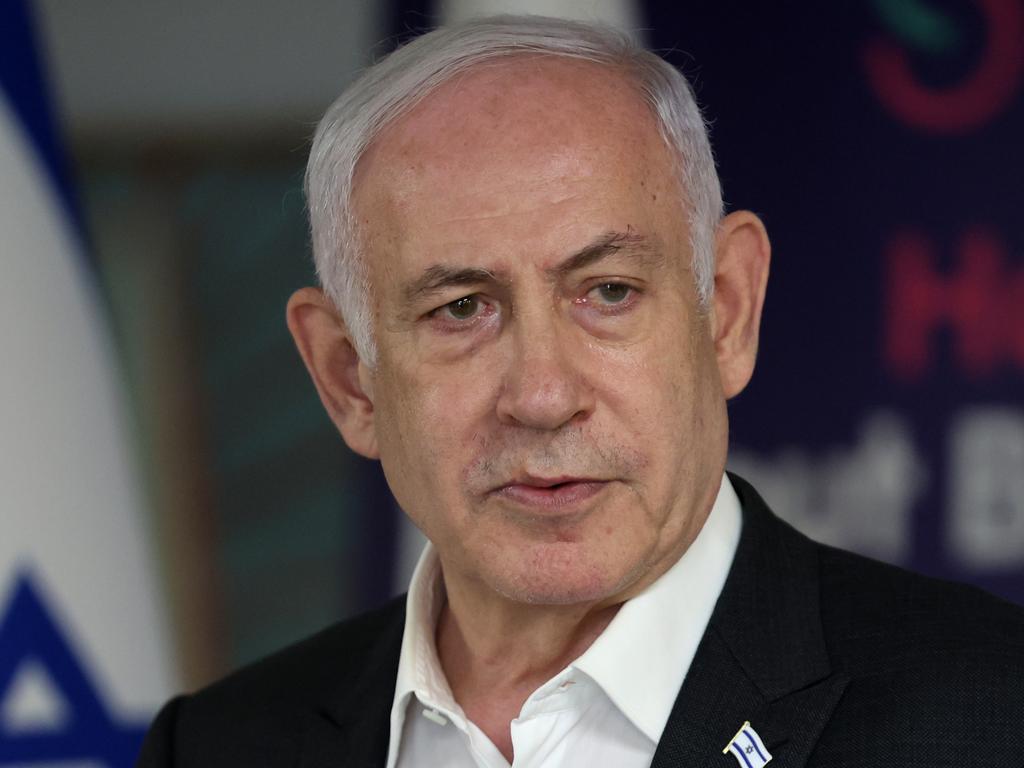Bold daylight rescue shows Israel will defend its own
Just as Israel’s epic raid on Entebbe did 48 years ago, its spectacular but smaller weekend success in bringing home four hostages held by Hamas in the heart of a crowded refugee camp in central Gaza has given the Jewish state a much-needed morale boost at a critical juncture in the war. No one can fail to have been moved by the sight of Noa Argamani, 26, being hugged by her father following her rescue. She was last filmed screaming on the back of a motorcycle as terrorists abducted her during their October 7 slaughter of 1200 Jews. Her salvation has brought immense joy to an increasingly isolated, despairing nation. No less moving, even for Palestinian sympathisers, was the news that Noa was reunited with her mother, Liora, who has stage four brain cancer. Her dying wish was to see her daughter once more.
Similarly emotional, and a boost for morale after their 246 days in captivity, were the homecomings of Almog Meir Jan, 22, Andrey Kozlov, 27, and Shlomi Ziv, 41, after a complex and difficult Israel Defence Forces operation. Mr Jan’s father, sadly, died hours before his son’s rescue. The events should leave no doubt, anywhere, about Israel’s ability and will to defend its own, and the importance of the remaining hostages influencing prospects for an end to, or a ceasefire in, the conflict. Once more, the terrorists’ evil in hiding themselves and their captives among civilian human shields – in the overcrowded Nuseirat refugee camp – was clear. Blame for the deaths of around 210 Gazan civilians during the rescue, as Hamas claims, rests with the terrorists.
There is no certainty about how many of the 120 hostages taken on October 7 are still in terrorist hands. Israeli officials believe 43 may have been killed by their captors. Whatever the number, the commitment, against immense odds, displayed by Israel in securing the release of the four hostages left no doubt about its determination to secure the release of all hostages, whatever the cost. Those naively expecting Israel to agree to a ceasefire without first gaining the release of the hostages need to understand that.
The Jewish state has a long, admirable history of protecting its citizens. On July 4, 1976, Israeli forces – including Prime Minister Benjamin Netanyahu’s older brother, Yoni, who was killed in the operation – flew 4000km to rescue hostages held by Palestinian and German terrorists aboard an Air France flight that was hijacked and taken to Entebbe, Uganda. The raid was one of the most spectacular rescue missions in modern military history; 102 of 106 hostages were rescued within an hour of landing. The successful operation had a profound impact on Israeli morale. Then, as now, it was under concerted attack.
The weekend daylight operation involved members of Yamam, the secretive anti-terrorism unit of the Israeli police, and the Shin Bet spy agency smuggling themselves into one of the world’s most overcrowded refugee camps. Noa Argamani was held in one building and the three men in another, in civilian homes. Gazans are frequently complicit in such operations. Hamas terrorists guarding the four were killed. The hostages were taken to a beach, from where helicopters carried them home. After eight months of war, it was a rare cause for celebration. World leaders, including Joe Biden, Emmanuel Macron and Olaf Scholz, congratulated Israel, confirming the importance of the operation. Key war cabinet member Benny Gantz backed away from his reported intention to resign. As Mr Netanyahu said: “Yet again (Israel) has proven it does not surrender to terrorism and acts with boundless valour and resourcefulness.” Until dozens of hostages in Hamas’s hands are returned, an end to the war or a ceasefire are unlikely. Hamas’s inhumanity, overwhelmingly, is responsible for Gazans’ desperate plight.





